
This year’s top legal innovators are, from left: William Caraher, Rebecca Scheller, Sam Owens, Mary Turke, Colleen Ball, and Sam Strauss (not pictured). Here they meet at the corporate offices of WTS Paradigm, a Middleton, Wis., technology company for the building products industry. Photos: Andy Manis
Could artificial intelligence help make legal research easier and less frustrating? How could you create a legal help desk when the people who need it are scattered statewide? How would you set up a law practice that appeals to talented lawyers who wish to work outside the typical law firm model?
These are just some of the questions answered by this year’s group of legal innovators, selected in the State Bar of Wisconsin’s third annual “That’s a Fine Idea: Legal Innovation Wisconsin” initiative.
“The idea is to showcase innovation in the legal community,” says Tom Watson, chair of the Innovation Subcommittee of the State Bar’s Communications Committee. “To us, innovation is a change in the way lawyers typically do things, or a new service or product offering, or a new way to deliver legal services. It runs the gamut.”
Legal innovation is happening around the state, Watson says, but often it goes unrecognized, sometimes even by the lawyers who themselves are devising new ideas. The State Bar’s innovations initiative brings those ideas into the spotlight.
What’s more, learning about others’ innovative ideas may inspire attorneys to come up with their own. “They may create their own entrepreneurial approach to the delivery of legal services,” Watson says. “Ultimately that’s better for lawyers and for their clients. Everybody wins.”
This year the State Bar honors five attorneys as legal innovators, including one lifetime-award winner. In addition, the judges chose to highlight two additional innovations (see the accompanying sidebar “There Must Be a Better Way to Solve Children’s and Family Law Matters!”).
The call for next year’s nominations will run from April through June 2017. Start thinking now about someone who may be a worthy nominee. It could be yourself or someone else. For more information, go to ThatsaFineIdea.com.
Lifetime Innovator Colleen Ball: Acting on Her Passion to Expand Access to Justice
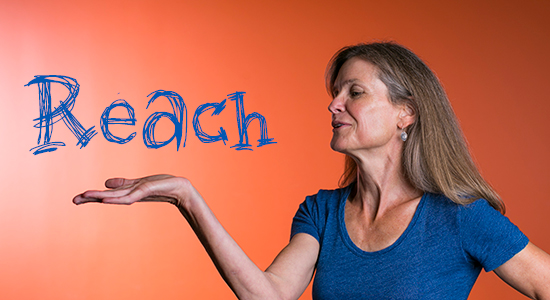
The 2016 Lifetime Innovator award recognizes Colleen Ball’s long-time passion for improving access to justice, particularly for pro se parties navigating the appeals process. Ball has the energy and vision – and tenacity – to recognize a great idea and put it into action.
Those who know Colleen Ball say she’s the consummate innovator – always open to new ideas that solve problems. She’s even been described as always in motion, looking for the next good idea and finding creative ways to implement it. Ball, a State Public Defender appellate attorney, channels her passion for access to justice into helping pro se parties navigate the appeals process and to finding ways to make appellate practice more efficient for lawyers. She has coordinated the pro bono program of the State Bar’s Appellate Practice Section since 1998.
Since 2009, when the section began keeping statistics, the program has donated nearly 14,000 hours and $3.8 million in free legal services to indigent people appearing before the Wisconsin Court of Appeals.
While Ball has shaped a highly successful pro bono program, she also continues to “outdo herself,” notes Jacob Wittwer, an attorney with the Wisconsin Department of Justice and last year’s chair of the Appellate Section Board, which nominated Ball for a legal innovation award. The judges selected her as a Lifetime Legal Innovator.
“She has so much energy, I don’t know where she gets it all,” Wittwer says. “And it’s not just energy, but vision. She comes up with great ideas herself, and she has the wisdom to recognize someone else’s great idea and develop it.”
Last year Ball led the way in expanding the Appellate Practice Section’s pro bono program by creating the online Appellate Help Desk. The aim is to assist pro se litigants with civil cases in the Wisconsin Court of Appeals. For most pro se litigants, the appellate process is befuddling and intimidating.
As a result, “many pro se appeals get derailed early on,” Ball explains, “because the litigants can’t figure out how to complete the necessary procedural steps to move their appeals forward.” Although litigants can direct their questions to the appeals clerk’s office, staff there can only answer questions, not give legal advice.
The virtual Appellate Help Desk aims to bridge the gap. Why a “virtual” model? Ball explains it’s the only practical solution for appeals litigants. They file a notice of appeal in the county where their case began, but all the work on the appeal gets done in the Court of Appeals office in Madison. Placing a help desk on site in Madison would help few people. “So we knew this had to be online,” Ball says.
Anyone seeking advice can call, text, or email the help desk through a free Google account that provides both email and Google Voice service. Volunteer attorneys staff the help desk for two hours, two days per week.
There Must Be a Better Way to Solve Children’s and Family Law Matters!
When you think of alternative dispute resolution, civil litigation comes to mind. But who says ADR needs to be confined to that area of the law? Certainly not Katie Murphy or Molly Jasmer, two legal innovators who have brought the benefits of ADR to the emotionally high-strung areas of children’s and family law. The judges in this year’s Legal Innovation initiative shine a spotlight on these innovators and the programs that are helping children and families facing legal difficulties.
Check out the sidebar below
Volunteers go online from anywhere – office, home, or on the road – to check and respond to inquiries. If the recipient of the lawyer’s return call has caller ID, he or she sees only the help desk number, not the lawyer’s office, home, or cell phone number. The help desk has had nearly 300 inquiries since last November.
Ball credits participating firms and organizations: Reinhart Boerner Van Deuren; Foley & Lardner; Quarles & Brady; Gimbel Reilly Guerin & Brown; The Previant Law Firm; Michael Best & Friedrich; Whyte Hirschboeck Dudek; Schmidt, Rupke, Tess-Mattner & Fox; Godfrey & Kahn; and the U.W. Law School Remington Center.
“This is truly, truly a community effort,” she emphasizes. “I feel I should carve up this award and give a slice of it to all those involved because this program wouldn’t work without them.”
Now Ball is working on her next great idea. “She thinks like a start-up,” says Jeff Brown, the State Bar’s pro bono program manager. Ball and Brown teamed up with students at Georgetown Law in last spring’s Iron Tech Lawyer competition. The resulting product, now in its finalizing stages, is the Appellate App, which may become known as the Brief Assistant once it’s available to users. It’s a web application that walks a person through an appellate brief, section by section, providing explanations.
Users also can create their own appellate brief by following a template to enter the appropriate information. “When they hit print,” Ball says, “out comes an appellate brief in the proper format.”
While the app is useful only in generating briefs for the Wisconsin Court of Appeals, “word has gotten out about this,” Ball says. “I’ve had calls from other states that want to do something similar. Once our app is up and we have a web presence, I’m hoping this idea will spread.”
Sam Owens: Equalizing Claimants in Discrimination Actions
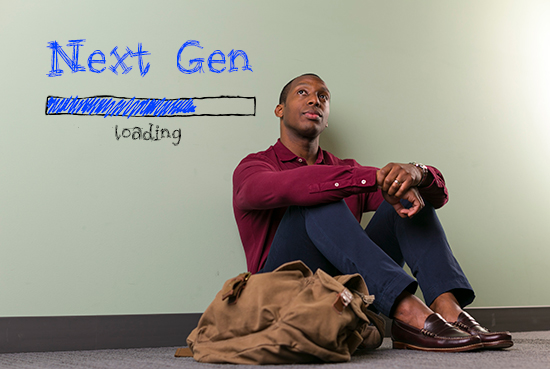
Sam Owens created his own interactive web application, eQualyzr.com, to help people with viable discrimination claims file a timely complaint with the appropriate agency. Because delays can torpedo a claim, he needed a system to efficiently obtain the data needed to quickly turn around and file a complaint on behalf of clients. So he built it.
All too often, people with viable discrimination claims would come to Madison attorney Sam Owens seeking justice – but it would be too late to file a complaint with the appropriate agency.
Claimants may be slow to act because they face significant hurdles, Owens explains. They must sift through several sources related to local, state, and federal laws to figure out which might best apply in their case. Plus, they have to wade through the legalese to try to comprehend what the law actually says.
But delays can torpedo a claim, even though it’s valid. The statute of limitation can be as short as 180 days on matters related to discrimination in employment, housing, and public accommodations.
“I needed a system that would help me efficiently obtain the data I need to quickly turn around and file a complaint on behalf of clients or prospective clients,” Owens says.
Not finding such a tool in the commercial software marketplace, he decided to create his own interactive web application, eQualyzr.com, which he launched in January 2016.
Dianne Molvig is a frequent contributor to area and national publications.
The application guides users through a series of questions written in plain English. By answering these questions, users “get a good ballpark idea of whether they have an actionable claim,” Owens says. Filling out the online form takes only a few minutes.
When Owens receives the completed form, he needs just a couple of minutes to interpret the information provided and spot what’s missing. “I’ll have about three-quarters of the data I need if the client should decide to move ahead on the claim,” he says. A brief follow-up conversation with the prospective client fills in the rest.
That saves time for both the client and Owens. Total information-gathering time runs 20 minutes or so, Owens says, compared to the hour it typically takes to extract all the legally relevant pieces from a client’s story.
“The application distills the information to the nuts and bolts of what the client needs to make his or her prima facie case,” he says. “I can give clients a more satisfactory experience. They feel they’re getting great value out of just a few minutes of interacting with an attorney.”
So far, eQualyzr has been drawing an average of 10 users per week. An added bonus is that the application is getting people accustomed to online complaint submissions, which the Equal Employment Opportunities Commission is now testing in a pilot program.
Owens says some interested parties have approached him about the idea of translating eQualyzr into Spanish and Hmong. The application also may prove useful to other equal rights lawyers in Wisconsin.
Although he still aims to make more improvements in the application, he says, “I can see the possibility of licensing down the road.”
Mary Turke and Sam Strauss: Building a Virtual Firm in the Cloud
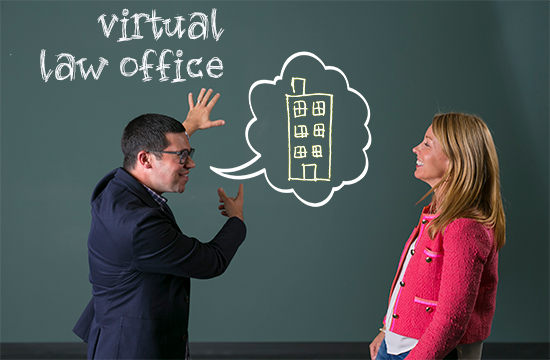
Sam Strauss and Mary Turke are partners in a virtual law practice that is as much a technology start-up as it is a law firm. Their cloud-based firm engages seasoned attorneys in several states on a project basis, either as contract attorneys hired to handle a specific case or as collaborators in class actions. Turke is physically located in Madison and Strauss is in Seattle.
In the minds of its owners, Turke & Strauss LLP is as much a technology start-up as it is a law firm. The two partners describe their enterprise, launched in May 2016, as “a cloud-based firm that engages seasoned attorneys on a project basis.”
Mary Turke had 17 years’ experience working in a large law firm representing business clients. Sam Strauss, who was three years out of law school, had been working remotely for a law firm in Seattle, mostly representing plaintiffs in consumer class actions. The two soon-to-be law partners met at a dinner party in Madison.
“Our worlds are sort of opposite in terms of experience,” Strauss says, “but we hit it off talking about how we understand litigation and legal practice.”
Turke had long wanted to start her own practice, and she recognized how Strauss’s skill sets complemented her own. From the beginning, their goal was to develop a different kind of law firm.
“It made sense to us that there are attorneys out there who don’t want to go the traditional track of working for a large law firm and becoming a partner,” Turke says. “Other things are more important to them, such as family time and flexibility. So we thought about how we could leverage these attorneys who are not part of a firm but still want to practice law and do great work.”
Once they struck on this idea, the two attorneys did extensive research on the legal marketplace. They reviewed the in-depth analysis of innovative law practice models conducted by the University of California Hastings College of the Law. “Our model is a combination of a host of models we looked at,” Strauss says.
Today Strauss works primarily out of a Seattle office, and Turke’s office is in Madison. But their firm has a much wider reach because they contract with other attorneys from around Wisconsin and several other states. They work regularly with approximately 20 attorneys who are either contract attorneys hired to handle a specific case or are collaborators in class actions.
True to their initial intention, the firm serves a wide range of clients, from multinational companies to small businesses to individuals. Because Turke and Strauss invest in technology instead of fancy office space, they can compensate their contract attorneys well, while also charging clients less than the norm.
Looking to the future, the duo hopes to grow the number of attorneys in its network, but with careful vetting up front. “They’re working under our firm name,” Turke explains, “and under our malpractice insurance. So we have to feel comfortable and confident with their work product. So far, we’ve been delighted, and we’ve worked with some great lawyers.”
William Caraher: Adopting ROSS Artificial Intelligence

William Caraher, chief information officer at von Briesen & Roper s.c., early on recognized artificial intelligence as a game-changing technology. Caraher was first in line to beta test the ROSS Intelligence tool as a research platform for bankruptcy law, delivering better results faster, which leads to better client service.
William Caraher always keeps an eye out for what he calls “game-changing technologies” in the legal field. Nearly two years ago, he spotted a bright prospect: an artificial intelligence tool called ROSS Intelligence.
“I thought if this could do half of what its developers were thinking it could do, it would transform the delivery of legal services,” recalls Caraher, chief information officer at von Briesen & Roper s.c. in Milwaukee.
At the time, ROSS Intelligence had just won second place in a 2014 IBM contest that challenged research teams at 10 universities to develop a new tool using its supercomputer, Watson, which gained fame on the television game show “Jeopardy!” ROSS was the only entrant targeted to the legal profession.
Caraher immediately contacted ROSS’s creators at the University of Toronto to express interest and willingness to help test the research tool down the road. “We were involved from before day one, before they had a company,” Caraher says, “by reaching out to let them know we could be a resource.”
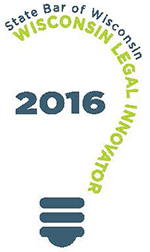 Know a Legal Innovator? Are You One?
Know a Legal Innovator? Are You One?
Nominations for next year open April 1 and close on June 30. To learn more, visit ThatsaFineIdea.com.
Months later ROSS Intelligence, by then a Silicon Valley tech start-up, called to request von Briesen & Roper’s involvement. The firm did beta testing for several months and is now among the early ROSS licensees.
ROSS is a research platform that allows users to pose natural-language questions. The database contains statutes, case law, and secondary sources – so far only in bankruptcy law, but the company plans to expand into other areas of law. When search results pop up, so do all documents cited. No more scrambling to find them in other databases or a law library.
The user gives ROSS feedback by voting up or down on specific search results. From that, ROSS learns from the interaction to be able to zero in on the most relevant results. One or two search questions usually suffice to produce spot-on hits. No more slogging through perhaps thousands of search results and then trying to refine the search syntax to uncover what’s truly useful.
Because ROSS yields better results faster, “ultimately that leads to better client service,” Caraher says, “because we’re able to get to the client’s core issues quickly and decide on the direction to take in the case.”
Among ROSS’s other helpful features is its briefcase/alert function. ROSS remembers what questions a lawyer has asked in the past. “As soon as changes in statutes or case law get into ROSS, you receive an alert,” Caraher explains. “That could make or break a case that straddles areas of the law that are in constant change.”
Will this “artificially intelligent lawyer,” as ROSS is billed, replace associates who typically research cases? Caraher doesn’t see that happening. “We see ROSS as an augmentation to the workforce. It’s a best-practice tool that makes lawyers more efficient and successful.”
Rebecca Scheller: Inspiring Diversity in the Legal Profession
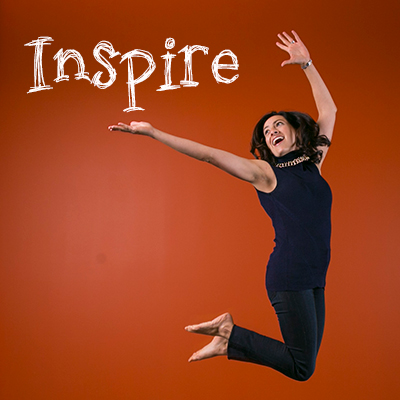
A demographic snapshot of the legal profession shows a striking lack of diversity. Rebecca Scheller and the team at the U.W. Law School Office of Admissions and Financial Aid set about to inspire change, giving college undergraduates from groups that are historically underrepresented in the legal profession a taste of the law school experience.
You can tell young adults what it would be like to go to law school and pursue a legal career. But what if they could get an actual taste of that experience?
That’s the idea behind the James E. Jones Jr. Pre-Law Scholars Program at the U.W. Law School. A key objective of the program is to enhance diversity, an ongoing goal of law schools nationwide and the legal profession as a whole.
In June 2016, 18 college undergraduates from Wisconsin and other parts of the country gathered at the U.W. Law School to participate in the new program named in honor of Jones, who was the law school’s first African-American professor.
The students came from groups that are historically underrepresented in the legal profession or socioeconomically disadvantaged. The law school received nearly 130 applications for last summer’s inaugural program, which was funded by a grant from the Access Group Center for Research & Policy Analysis.
For one month, the selected students attended classes, presentations, and workshops that covered introductory law courses, legal writing, preparing for the LSAT, applying to law schools, writing a resumé, and networking.
“We wanted to give them a simulation of what law students get,” says Rebecca Scheller, the law school’s assistant dean for admissions and financial aid, who led the development of the program. “We also wanted them to come away from this feeling confident in applying to law schools.”
Six law school faculty members, along with Scheller and her team in the Admissions and Financial Aid office and staff from the law school’s Office of Career and Professional Development, taught the program sessions. Faculty and staff gained from the experience as much as the undergraduates, Scheller points out.
“We found the students to be engaged,” she says, “and eager to learn and share their own experiences. We also had the opportunity to work with a different type of student. Law students already have undergraduate degrees, and many have advanced degrees or are pursuing a second career. So we felt there was a new kind of energy with this group. That gives all of us here at the law school a different perspective on our work.”
The broader Madison legal community also got into the action. Students met with practicing attorneys, had a behind-the-scenes tour of the Wisconsin Supreme Court with Chief Justice Pat Roggensack, and were invited into the courtroom of Dane County Circuit Court Judge Ellen Berz.
Student reactions have affirmed that the program is on the right track. For instance, “one of the students stopped in the other day,” Scheller reports. “She said she’d be willing to help us promote the program in future years and that it’s motivated her to apply to law school.”
There Must Be a Better Way to Solve Children’s and Family Law Matters!
When you think of alternative dispute resolution, civil litigation comes to mind. But who says ADR needs to be confined to that area of the law? Certainly not Katie Murphy or Molly Jasmer, two legal innovators who have brought the benefits of ADR to the emotionally high-strung areas of children’s and family law. The judges in this year’s Legal Innovation initiative shine a spotlight on these innovators and the programs that are helping children and families facing legal difficulties.
Katie Murphy: Involving Parents in Parenting Agreements
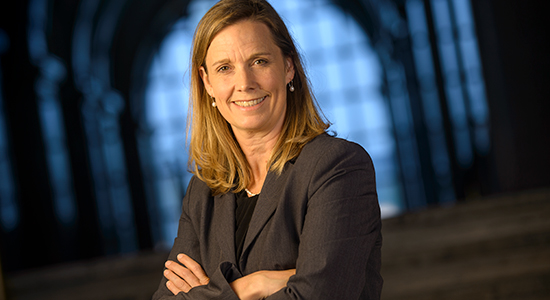
Katie Murphy helped develop a program within Milwaukee County Child Support Services that involves parents in working out parenting agreements, with the court as a backup. The program has resulted in removal of 220 cases from the family court commissioner’s calendar, less time chasing down support payments, and more parental involvement in children’s lives. Photo: Kevin Harnack
A new alternative dispute resolution program within Milwaukee County Child Support Services (CSS) centers around a core idea: get parents involved. “We thought: Why don’t we get people to sit down to try to work out a parenting agreement, and let court be the backup plan?” explains Katie Murphy, CSS legal counsel.
She soon found help in bringing the program to life. Natalie Fleury, program coordinator for dispute resolution at Marquette Law School, had input in framing the program. Kevin Long, one of Murphy’s former colleagues at Quarles & Brady LLP, Milwaukee, offered his firm’s help in providing pro bono attorneys. Mary Ferwerda, director of the Milwaukee Justice Center, also offered her organization’s assistance.
The program, launched in June 2015, has two aspects: case conferences and parenting conferences. The case conferences, held within CSS, are negotiations to set initial orders in family court matters. At parenting conferences, held at the Milwaukee Justice Center, pro bono attorneys and law students act as facilitators to help parents modify existing orders. In both types of conferences, if parents reach an agreement, a stipulated order goes to the family court commissioner for approval.
In the program’s first year, 242 cases went to case conferences, resulting in stipulated orders for 179 of those cases, or 73 percent. The agreement rate climbed to 96 percent when both parties participated.
The program had 118 parenting conferences in the first year, with 42 (36 percent) reaching stipulated agreements. When both parties participated, the agreement rate rose to 83 percent.
The conferences resulted in removing 220 cases from the family court commissioner’s calendar in that same year. Not only does this save court time, but CSS also spends less time chasing down support payments.
“Studies show that the more parents feel they’re involved in these decisions, the more likely they are to pay child support,” Murphy says. “But more importantly, the more likely they are to be involved in the child’s life.”
Molly Jasmer: Getting to Child’s Best Interest Through Mediation
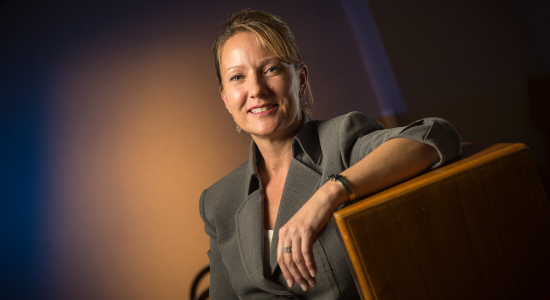
Molly Jasmer and the Waukesha County Juvenile Court use mediation to achieve better results, with less trauma, for families and children. On average, 80 percent of cases referred to mediation have been resolved, while 84 percent of TPR cases have successful resolutions, without having to go to trial. Photo: Kevin Harnack
Juvenile court matters often are emotionally charged, especially if the matter involves termination of parental rights (TPR), children in need of protection or services (CHIPS), or other touchy issues. The Waukesha County Juvenile Court strives to reach better results, with less trauma, through its mediation program.
“We walk into the mediation and say, ‘This is your family, and we think it’s best if you figure out what’s the best solution for your family, for this child,’” explains Molly Jasmer, Waukesha County Corporation Counsel.
Participants in the mediation sessions include parents, parents’ lawyers, placement providers, the guardian ad litem, the social worker, other relatives of the family, Jasmer in the role of prosecutor, and in some cases, the child.
Mediation evens out the power among the parties, Jasmer says, and it takes place in an environment in which parents and placement providers can talk openly about their concerns and fears.
“We want there to be an honest conversation,” she says, “because parents have to get their issues off their chests before they’re going to be able to move on to a discussion of the future of the child.”
The program began on a pilot basis when Jasmer consulted with U.W. Law School professor Donna Erez-Navot, who’d had experience in TPR mediations in New York. Erez-Navot and Perri Mayes, also then with the law school, served as mediators, with the law school’s Mediation Clinic students brought in as observers. Since then, Erez-Navot has left the law school, and law students no longer are involved. Mayes, who’s now with U.W.-Madison Continuing Studies, still leads the mediations.
On average, 80 percent of cases referred to mediation have been resolved, while 84 percent of TPR cases have come to successful resolutions, without having to go to trial.
“What mediation tries to get at,” Jasmer says, “is ‘What does this child need?’ Not ‘What do the adults need?’ Those are two separate questions.”
